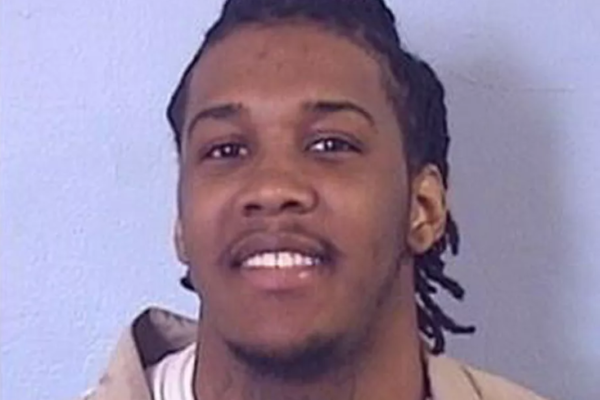A Chicago man sentenced to 76 years in prison for his alleged role in a deadly shooting is now challenging his conviction — a decision that was largely based on the testimony of a blind man.
Darien Harris, 26, was just a senior in high school when he was convicted of murder, attempted murder and other charges related to a 2011 shooting outside a convenience store on the city’s South Side. Judge Nicholas Ford, a former assistant Cook County state’s attorney, threw the book at the then-teen, handing him a 76-year sentence for the crime in 2014.

Darien Harris, 26, plans to appeal his murder conviction with the Illinois Supreme Court. (Image courtesy of Illinois Department of Correction)
What he didn’t know, however, is that the prosecution’s key witness, Dexter Saffold, was legally blind. Ford, whose judicial rulings have been reversed in over a dozen cases, quietly retired in April and now works in immigration court, the Chicago Sun Times confirmed.
Harris and his lawyers are now fighting to get the conviction overturned on the basis that neither he nor the judge were privy to Saffold’s vision issues.
According to The Washington Post, a private investigator hired by Harris discovered a 2013 housing discrimination lawsuit in which Saffold said he suffered from glaucoma, a progressive disease that damages the eye’s optic nerve. A doctor’s letter attached to the suit stated Saffold was legally blind and permanently disabled with “markedly reduced vision,” particularly at night.
Saffold’s eyesight also briefly came up trial, during which he initially testified that he had vision issues then quickly changed his statement.
Harris’s attorney, Jodi Garvey, has previously called on the court to review her client’s case, and argued that Saffold’s testimony should be tossed out completely.
“Considering the fact that Mr. Saffold is admittedly legally blind, a matter he denied during his testimony, his identification is worthless,” Garvey wrote in a July court filing.
At trial, the visually-impaired man testified that he was riding his scooter near the BP gas station when gun shots rang out. He told the judge he saw someone shooting a dark-colored gun and described the bright flashes from the muzzle. The suspect was about 18 feet away, he said.
Saffold said the gunman bumped into him as he fled the scene of the late night shooting. Saffold would choose Harris out of a lineup just eight days later, and identified the young man again in court.
The trial lawyer did briefly raise the issue of the witness’s vision at trial, asking Safford if his diabetes affected his vision. Safford would say yes at first, then change his answer to “No, it does not.”
Garvey says not only did Saffold have trouble seeing at night, but surveillance video showed his motorized scooter approach the gas station only after the gunman had left the feed’s view. Therefore, there was no way he could’ve seen the incident unfold just feet away from him, as he had testified. This evidence did not emerge at trial.
“We have a kid who was barely 18, wrongfully convicted,” Garvey told The Washington Post in a recent interview. “He had the ability to graduate high school with his classmates taken away from him. He probably would have graduated from college now.”
Harris, 26, has maintained his innocence throughout the case. His mother, Nakesha Harris, said her son was at home watching the NBA playoffs with his father when the fatal shooting occurred. Harris argued many mistakes were made in her son’s case but she’s happy it’s finally getting recognition.
“I think that they’re going to have no choice but to do the right thing at this point,” she told the newspaper.
As for Judge Ford, he’s been appointed as a U.S. Immigration Court judge, based in San Francisco, California, drawing tough scrutiny from a progressive lawyers group.
State’s Attorney’s Office confirmed that Harris’ case is under review. Darien Harris also plans to appeal his conviction in the Illinois Supreme Court.


